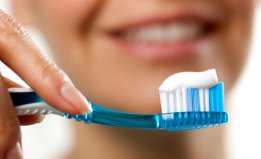Looking after your teeth is essential if you want to maintain a healthy smile that doesn't just affect your oral hygiene but the rest of your physical and mental well-being too.
Unfortunately, if neglected, common dental issues including cavities, enamel erosion and gum disease can lead to painful symptoms and even tooth loss.
But the good news is that ensuring your teeth and gums stay healthy comes down to a few simple hygiene practices which should be done every day.
The sooner you learn these good oral hygiene habits, including the correct way to brush and floss, the easier it is to avoid dental issues in the future.
Common symptoms of dental problems
Here are a few common symptoms that could indicate a problem with your teeth and which should trigger a visit to the dentist.
- Soreness or tenderness when chewing
- Areas of the mouth that are red, inflamed, swollen or tender, and which haven't healed within a week, especially if there has not been a specific injury
- Persistent bleeding and swollen gums, particularly after brushing or flossing, and which is often painful
- Experiencing sharp pains or dental sensitivity on contact with hot or cold temperatures
- Bad breath which is hard to treat and often accompanies a dry mouth
- Cheek and facial swelling
- Irregular jaw clicking or popping
- Cracks or chips in your teeth
- Gum recession
- Teeth that feel loose
It's never a good idea to wait until you experience pain, as this can mean problems have already become deep-rooted.
Attending regular dental check-ups at least every six months will enable your dentist to discover any potential dental problems before you even start to notice symptoms.
The process of dental check-ups
The dentist will begin by cleaning your teeth and removing plaque, and calculus (tartar) which can cause staining. Next, your teeth will be inspected for signs of gum diseases, and if needed, surface treatments will be applied.
By checking the teeth, the dentist can also see if there are visual indications of other problems that may need more extensive treatment, including cracks or holes.
During the check-up, the dental staff will inform you about the causes of dental disease, and how regular brushing and flossing can stop these diseases from starting or progressing.
How to maintain healthy teeth and gums
When you maintain good dental practices, you'll find your oral hygiene improves too. Here are some top tips to follow to help prevent future dental problems:
- Brush your teeth twice a day (always last thing before bed) using a fluoride toothpaste
- At least once a day use floss or a water pick to clean between the teeth. This is crucial for removing trapped food and plaque around the gum line - the most vulnerable part of your mouth
- Get a professional check-up every six months, or sooner if recommended
- Eat a healthy varied diet and cut back on sugary or processed foods
- Stop smoking and using other tobacco products (such as chewing tobacco) as this can lead to mouth cancer
Our trained team can set you on the path to good dental habits during your regular dental check-ups.






